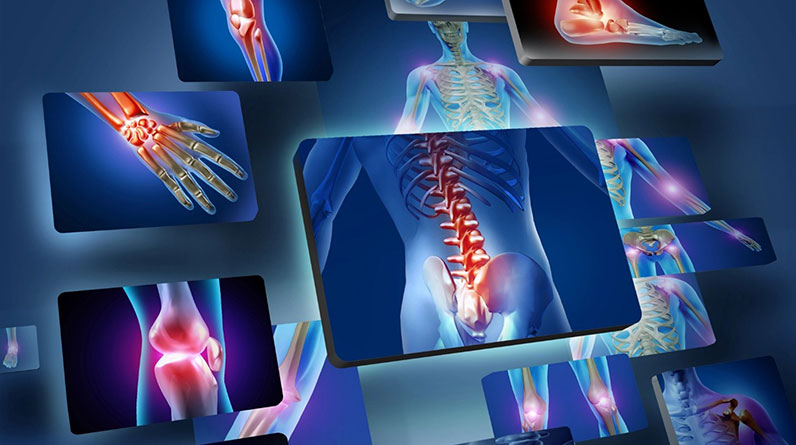
Hormones and Bone Health
Bone health is intricately regulated by a variety of hormones that influence bone formation, maintenance, and resorption. These hormones ensure that bones remain strong and healthy throughout life.
Among the key hormones that significantly impact bone health are estrogen, testosterone, parathyroid hormone (PTH), calcitonin, and growth hormone.
Key Hormones Affecting Bone Health
Estrogen
Estrogen is a particularly important hormone for bone health, particularly in women. It helps to maintain bone density by inhibiting bone resorption, the process by which bone is broken down and its minerals released into the bloodstream.
Estrogen helps to balance bone remodeling, ensuring that bone formation and resorption occur at a balanced rate. During menopause, the significant drop in estrogen levels leads to an increase in bone resorption, which can result in rapid bone loss and a heightened risk of osteoporosis. This is why postmenopausal women are particularly vulnerable to fractures and bone density loss.
Testosterone
Testosterone, the primary male sex hormone, also contributes to bone health, particularly in men. Like estrogen, testosterone helps maintain bone density by promoting bone formation and reducing bone resorption.
As men age, testosterone levels gradually decline, which can lead to a decrease in bone density and an increased risk of osteoporosis. While the impact of testosterone on bone health is most notable in men, it is also important in women, as they produce small amounts of testosterone, which contributes to overall bone strength and maintenance.
Parathyroid Hormone (PTH)
Parathyroid hormone (PTH) is produced by the parathyroid glands and regulates calcium levels in the blood, which is a determining factor of overall bone health. PTH increases calcium levels by stimulating the release of calcium from bones into the bloodstream, enhancing calcium absorption from the intestines, and reducing calcium loss through the kidneys.
While PTH is essential for maintaining normal calcium levels, chronically high levels of PTH, as seen in conditions like hyperparathyroidism, can lead to excessive bone resorption and subsequent bone loss, increasing the risk of osteoporosis.
Calcitonin
Calcitonin is a hormone produced by the thyroid gland that works in opposition to PTH to lower blood calcium levels. It does this by inhibiting the activity of osteoclasts, the cells responsible for bone resorption, thereby reducing the release of calcium from bones.
While calcitonin is not as important in overall calcium and bone metabolism compared to PTH, it is important in situations where rapid decreases in calcium levels are necessary, such as in hypercalcemia (high blood calcium levels). Calcitonin has been used therapeutically in certain bone conditions to help manage bone resorption and maintain bone density.
Growth Hormone
Growth hormone, produced by the pituitary gland, is essential for bone growth and development, particularly during childhood and adolescence. It stimulates the production of insulin-like growth factor 1 (IGF-1), which promotes bone formation and increases bone density. Growth hormones also function in maintaining bone mass in adults by influencing bone remodeling.
Deficiencies in growth hormone, either due to genetic conditions or pituitary disorders, can result in reduced bone density and an increased risk of fractures. Conversely, excessive growth hormone, as seen in conditions like acromegaly, can lead to abnormal bone growth and joint issues.
Treatment and Management
Maintaining bone health, especially when hormonal imbalances occur, requires a multifaceted approach. Effective treatment and management strategies include hormone replacement therapy (HRT), lifestyle and dietary modifications, and the use of medications and supplementation.
Hormone Replacement Therapy (HRT)
Hormone Replacement Therapy (HRT) is a common treatment option for managing bone health in individuals experiencing hormonal imbalances, particularly during menopause in women. HRT involves the administration of hormones such as estrogen (and sometimes progesterone) to compensate for the natural decline in hormone levels.
By restoring estrogen levels, HRT helps to reduce bone resorption and maintain bone density, significantly lowering the risk of osteoporosis and fractures in postmenopausal women. However, HRT must be carefully considered and tailored to the individual’s health profile.
Lifestyle and Diet
Lifestyle and dietary choices are foundational in managing bone health, particularly in the context of hormone-related bone loss. Regular physical activity, especially weight-bearing and resistance exercises, helps to maintain bone strength and promote bone formation.
A diet rich in calcium and vitamin D is equally important for bone health. Calcium is the primary mineral in bones, and adequate intake is essential for maintaining bone structure. Good dietary sources of calcium include dairy products, leafy greens, and fortified foods. Vitamin D, which is necessary for calcium absorption, can be obtained from sunlight exposure, fatty fish, fortified foods, and supplements.
Medications and Supplementation
In addition to HRT and lifestyle modifications, medications and supplementation can be helpful in managing hormone-related bone health issues. For individuals at high risk of osteoporosis or with diagnosed bone density loss, medications such as bisphosphonates, selective estrogen receptor modulators (SERMs), and calcitonin may be prescribed to slow bone resorption and preserve bone mass.
These medications work by either inhibiting the activity of osteoclasts, the cells responsible for bone breakdown, or mimicking the effects of estrogen on bone tissue. Additionally, calcium and vitamin D supplements are often recommended to ensure that individuals receive adequate levels of these essential nutrients, particularly when dietary intake is insufficient.
By combining HRT, lifestyle and dietary modifications, and appropriate medications and supplementation, individuals can effectively manage hormone-related bone health issues. This comprehensive approach not only helps to maintain bone density but also reduces the risk of fractures and other complications associated with weakened bones, ensuring better long-term bone health.
